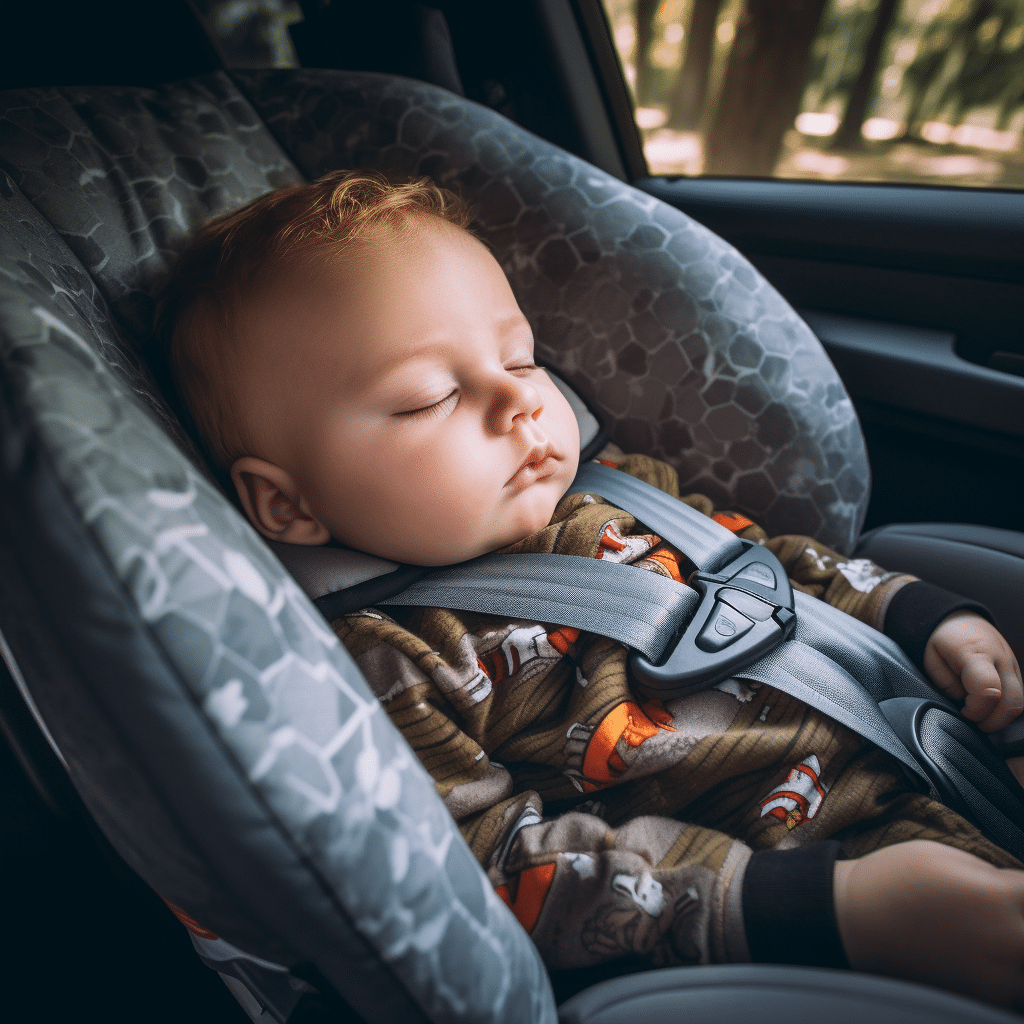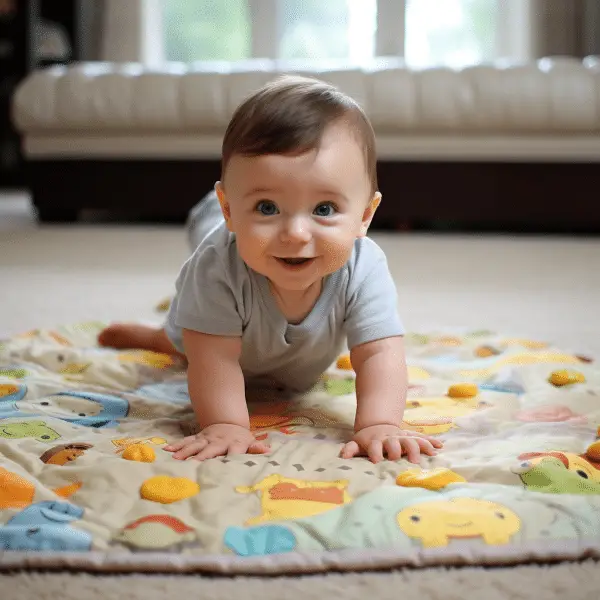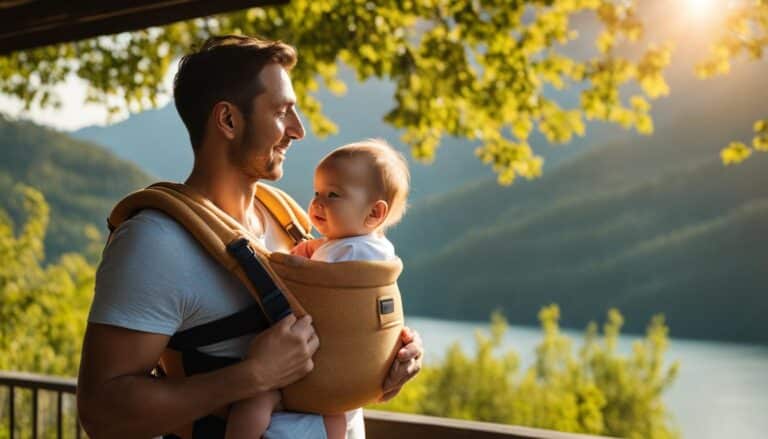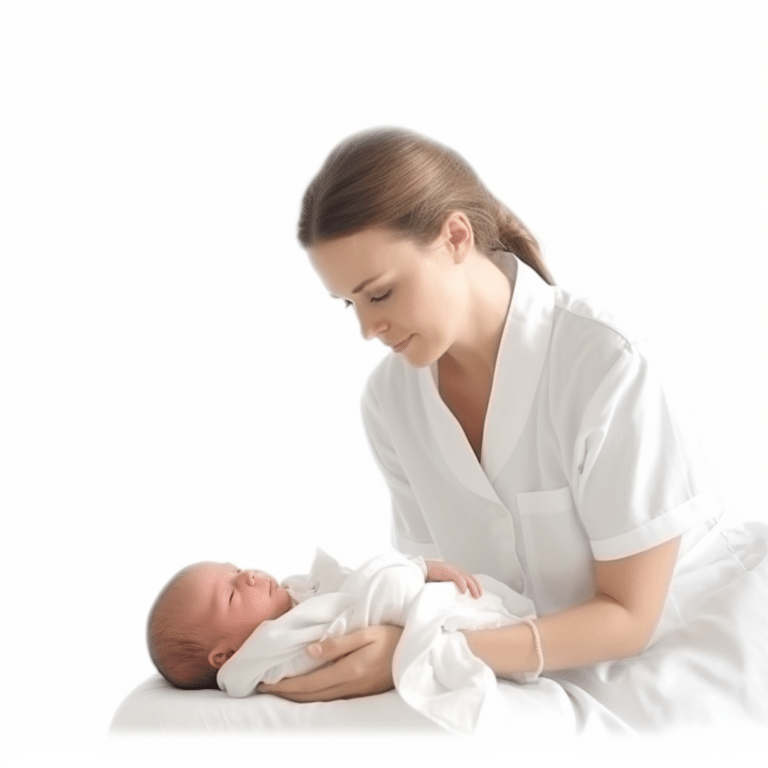Safe and Comfortable Travel Tips for Newborns
Introduction to newborns and travel by car
Newborn travel and cars can be a tricky subject for new parents. Safety is key when travelling with a newborn. It’s best to wait until the baby’s immune system is stronger, usually two months old, before a long car trip.
Experts suggest avoiding crowded places and enclosed spaces for too long, especially during flu season or contagious illnesses. So, it’s wise to avoid unnecessary car travel with a newborn during these times.
When travelling with a newborn, properly install their car seat and meet all safety regulations. Secure the baby in a rear-facing seat that is age and weight appropriate. Give good support to their head and neck to avoid injury.
Also, plan frequent breaks during long journeys. This will help the baby to stretch and feed. Pack extra diapers, clothing, blankets, and pacifiers for the trip.
Pro Tip: Consult your pediatrician before any car trip with your newborn. They can provide advice based on your baby’s individual needs and medical history. Plus, remember that your newborn can steal the show even before you start the car – who needs more distractions?
Factors to consider before traveling with a newborn
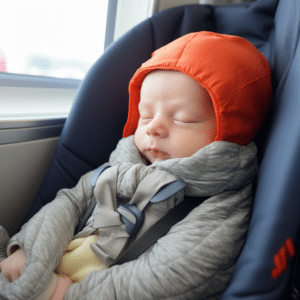
Taking a trip with your newborn needs thoughtful consideration. Making sure your baby is secure and comfy is vital. Here are some crucial tips to remember before you hit the road with your newborn:
- 1. Age and Development: It’s important to think about your infant’s age and development stage before getting ready for a car drive. Newborns have fragile neck muscles, so it’s advised to wait until they’re two months old before going on a long ride.
- 2. Appropriate Car Seat: Having an appropriate car seat is essential for driving with a newborn. Make sure it meets safety standards and is installed correctly.
- 3. Length of Travel: The duration of your trip is significant in determining if it’s suitable for your infant. Long jaunts can be overwhelming for both of you, so it’s best to start with shorter distances first.
- 4. Frequency of Stops: Newborns need regular stops during car rides to stretch, get fresh air, and have their needs attended to. Plan for regular pit stops.
- 5. Time of Travel: Be mindful of when you choose to drive with your newborn. Avoid peak traffic hours or extreme weather conditions that may add stress or discomfort.
- 6. Baby’s Health and Immunizations: It’s vital to make sure your baby is healthy before going by car. Ask your pediatrician regarding any specific precautions or immunizations required for the destination.
Also, prioritize keeping disturbances minimal while you drive and keep the temperature comfortable for your baby.
Research from the American Academy of Pediatrics shows that infants should only be exposed to limited screen time while traveling as too much media use can affect their social and cognitive development. So, drive with your newborn cautiously – it’s like playing Russian roulette but instead of bullets, it’s dirty diapers waiting to explode!
Age restrictions and recommendations for newborns traveling by car
Infants must always travel in a rear-facing car seat until they reach the max weight or height limit. In many countries, it’s required by law to use one for infants up to a certain age or weight. Ensure car seat is properly installed and check regularly for any defects or damage. Avoid second-hand car seats, as they may not comply with current safety standards.
It’s advised not to make long journeys with newborns. Their delicate bodies need frequent breaks for feeding, changing diapers and stretching. If you plan to travel long distances, allow enough time for regular stops and rests.
Consult your pediatrician before going on a car trip. They can provide specific advice based on the baby’s individual needs and health condition.
For newborns, a detachable car seat that transforms into a mini barista is essential! It’ll come in handy on those inevitable sleepless nights. Above all, prioritize your baby’s comfort and safety when traveling by car.
Essential car travel accessories for newborns
Parents, get ready to hit the road with your newborn! You’ll need essential accessories to keep them safe and comfortable during the car ride. Start with a car seat that fits their age and weight. A sunshade provides protection from the sun’s harmful UV rays and keeps the car cooler. Plus, you can keep an eye on your baby in their rear-facing car seat using a baby mirror.
For longer trips, pack a bottle warmer and insulated bag for feeding time. Don’t forget extra diapers, wipes, and baby blankets. Finally, always check that all accessories are properly installed before you leave. Safe travels!
Tips for a smooth and safe car journey with a newborn
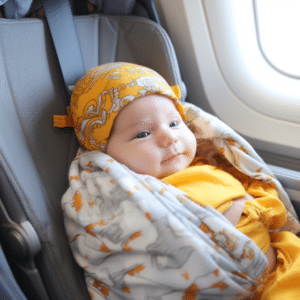
A car journey with a newborn needs special prep and vigilance to ensure the baby’s safety and comfort. Here are some tips to make the trip easy and safe:
- Check the car seat straps, buckles, and harnesses are secure.
- Have diapers, wipes, extra clothing, blankets, and a changing pad ready.
- Make stops for feeding, burping, and diaper changes.
- Avoid travelling in peak traffic.
- Use sunshade or window shades to protect from direct sunlight.
Remember a few important details too! Put the car seat in the backseat of the car facing backwards. Don’t fill the car with extra stuff, which can reduce visibility and create danger. And don’t go until the baby can buckle up without a booster seat!
Conclusion and final thoughts on when a newborn can travel by car
When traveling with a newborn in a car, safety should always be the priority. It is recommended to wait until one month old before taking them on longer rides. As their immune system is still growing, there’s a higher risk of illness. Make sure their car seat is securely installed and they are fastened in. Factor in frequent stops for feeding, diaper changes, and to stretch.
It’s essential to dress the baby accordingly for the weather outside, avoiding them getting too hot or cold. Use sun shades on the windows to protect them from direct sunlight and to keep the vehicle cooler. Check the weight limitation guidelines on the car seat before going on your journey.
Did you know? According to Stanford Children’s Health, newborns’ neck muscles are still developing, meaning their necks are more fragile. Make sure to support their head and neck while in the car seat.
